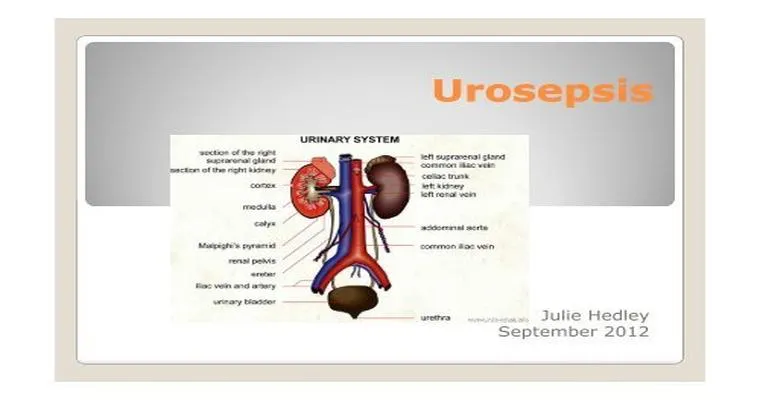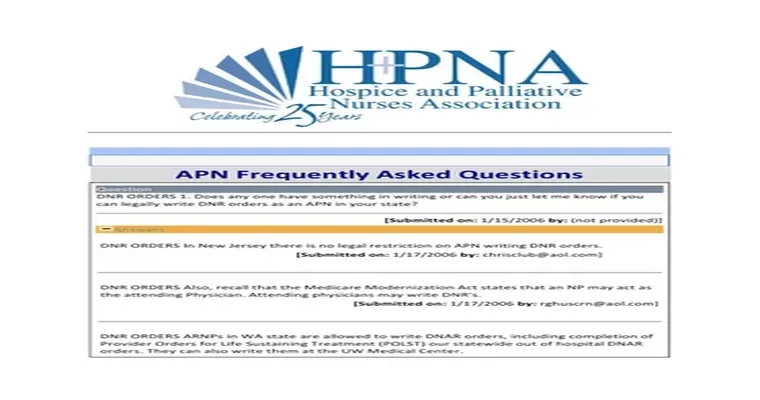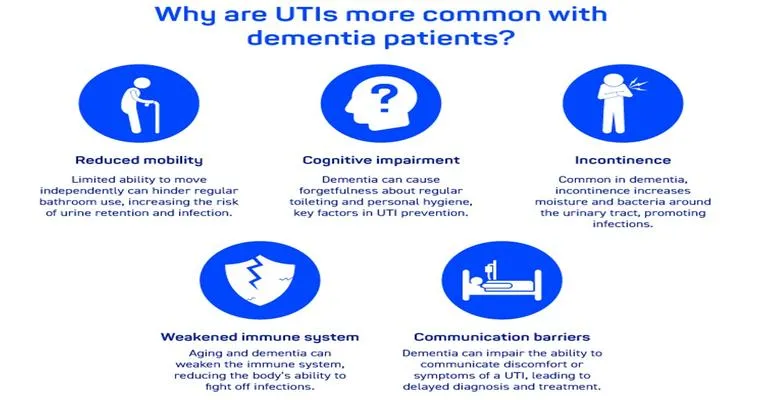Urosepsis is a severe condition that arises from a "urinary tract infection" (UTI), leading to a systemic infection that can cause "confusion" and other cognitive impairments. It is essential to understand the relationship between urosepsis and confusion, as early detection and treatment can significantly improve patient outcomes. In this article, we will explore the causes, symptoms, and treatment options for urosepsis, particularly focusing on how it can lead to confusion in affected individuals.
What is Urosepsis?
Urosepsis occurs when a UTI spreads from the urinary system into the bloodstream, resulting in a body-wide inflammatory response. This condition typically affects older adults, particularly those with underlying health issues, such as diabetes or weakened immune systems. The bacteria responsible for the infection can enter the bloodstream through the kidneys or bladder, leading to severe complications if not treated promptly.
Symptoms of Urosepsis
Recognizing the symptoms of urosepsis is crucial for timely intervention. Common signs include:
Fever or chills
Rapid heart rate
Confusion or altered mental status
Difficulty concentrating
Low blood pressure
Urinary symptoms such as pain during urination or increased urgency
Among these symptoms, "confusion" is particularly alarming. It can manifest as disorientation, difficulty in communication, or changes in behavior. This cognitive impairment can lead to a misdiagnosis if health care providers are not aware of the patient's underlying urosepsis.
How Does Urosepsis Cause Confusion?
The connection between urosepsis and confusion can be attributed to several factors:
1. "Infection and Inflammation": The body's response to infection can lead to widespread inflammation, affecting brain function. Cytokines, which are signaling molecules released during an immune response, can influence cognitive processes.
2. "Decreased Blood Flow": Severe infections can lead to septic shock, causing a drop in blood pressure and reduced blood flow to vital organs, including the brain. This can result in temporary or permanent cognitive dysfunction.
3. "Electrolyte Imbalances": Urosepsis may lead to imbalances in electrolytes, such as sodium and potassium, which are crucial for normal brain function. These imbalances can further exacerbate confusion.
4. "Medications": Patients with urosepsis may be treated with various medications, some of which can have side effects that impact mental status, especially in older adults or those with preexisting conditions.
Treatment Options for Urosepsis
Prompt treatment is vital for resolving urosepsis and mitigating its effects on cognitive function. Treatment typically involves:
"Antibiotics": Administering intravenous antibiotics to target the underlying infection is crucial. The choice of antibiotic may be adjusted based on culture results from urine or blood samples.
"Intravenous Fluids": Providing fluids helps restore blood pressure and improve circulation, which can support brain function and reduce confusion.
"Supportive Care": Managing symptoms and providing supportive care, including monitoring vital signs and cognitive status, is essential for recovery.
"Addressing Underlying Conditions": Treating any preexisting medical conditions can help prevent future episodes of urosepsis and associated cognitive issues.
Conclusion
Understanding the connection between urosepsis and confusion is critical for both patients and healthcare providers. Recognizing the symptoms early can lead to timely treatment, ultimately improving outcomes and reducing the risk of long-term cognitive impairment. If you or a loved one experiences signs of a UTI accompanied by confusion, it is essential to seek medical attention immediately. By being aware of urosepsis and its potential effects, we can work towards better health outcomes and enhanced quality of life.





